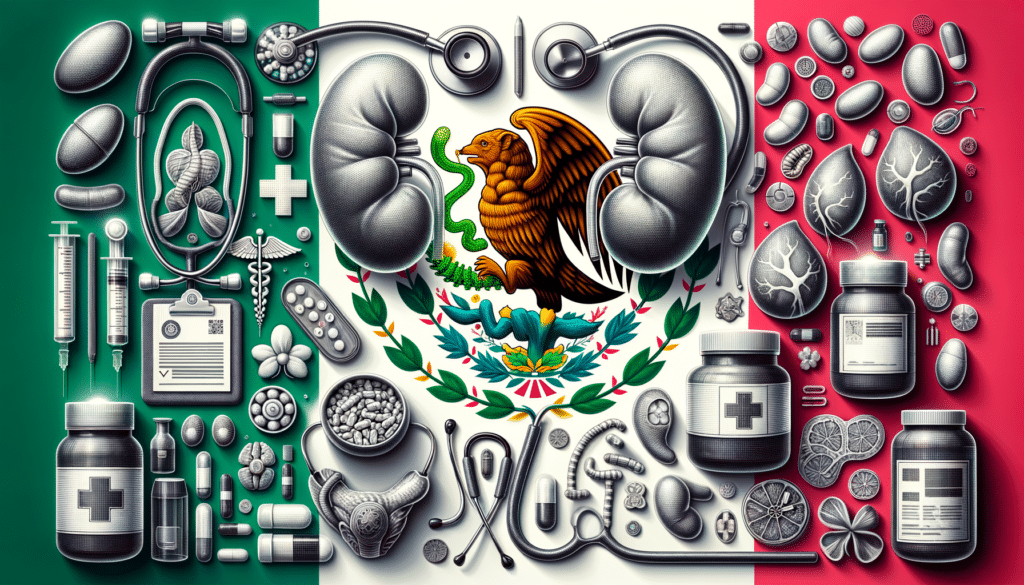Introduction to Urinary Tract Infections
Urinary tract infections (UTIs) are a prevalent health concern worldwide, including in Mexico. They occur when bacteria enter the urinary tract, causing symptoms such as a burning sensation during urination, frequent urges to urinate, and cloudy or strong-smelling urine. Understanding the treatment options available in Mexico is crucial to effectively managing these infections and preventing potential complications. In this article, we will explore the various aspects of UTI treatment in Mexico, including medical approaches, traditional remedies, and preventive measures.
Medical Treatment Options
In Mexico, the medical treatment of UTIs typically involves the use of antibiotics. The selection of antibiotics depends on the severity of the infection and the specific bacteria causing it. Common antibiotics prescribed include nitrofurantoin, trimethoprim-sulfamethoxazole, and fosfomycin. These medications are effective in eliminating the bacteria and alleviating symptoms.
Key considerations for antibiotic treatment in Mexico include:
- Antibiotic Resistance: It’s crucial to use antibiotics judiciously to prevent the development of resistant strains of bacteria.
- Prescription Requirement: Most antibiotics require a prescription from a healthcare professional.
- Follow-up Care: Patients are advised to complete the full course of antibiotics and attend follow-up appointments to ensure the infection is fully cleared.
While antibiotics are the cornerstone of UTI treatment, healthcare providers in Mexico may also recommend additional medications to relieve symptoms, such as pain relievers or antispasmodics. These adjunct treatments aim to enhance patient comfort during recovery.
Traditional Remedies and Alternative Approaches
In addition to conventional medical treatments, many people in Mexico turn to traditional remedies and alternative approaches to manage UTIs. These methods are often used as complementary therapies alongside prescribed medications.
Some popular traditional remedies include:
- Cranberry Juice: Known for its potential to prevent bacteria from adhering to the urinary tract lining.
- Herbal Teas: Infusions made from herbs like chamomile or parsley are believed to have soothing properties.
- Hydration: Drinking plenty of water helps flush out bacteria from the urinary tract.
While these remedies are widely used, it’s important to note that their efficacy may vary, and they should not replace medical treatment. Patients are encouraged to discuss any alternative therapies with their healthcare provider to ensure they are safe and appropriate for their condition.
Preventive Measures and Lifestyle Modifications
Preventing UTIs is a key focus for healthcare providers and individuals alike. In Mexico, several lifestyle modifications and preventive measures are recommended to reduce the risk of developing UTIs.
Effective preventive strategies include:
- Proper Hygiene: Maintaining good personal hygiene, especially after using the bathroom, can reduce the risk of bacterial contamination.
- Dietary Changes: Incorporating foods rich in probiotics, such as yogurt, may support urinary tract health.
- Regular Urination: Avoiding holding urine for extended periods helps prevent bacterial buildup.
Additionally, individuals are advised to wear loose-fitting clothing and cotton underwear to promote airflow and reduce moisture, creating an environment less conducive to bacterial growth. These lifestyle adjustments, combined with medical advice, can significantly lower the incidence of UTIs.
Conclusion
Urinary tract infections are a significant health issue in Mexico, but with the right treatment and preventive measures, they can be effectively managed. Medical treatments, including antibiotics, remain the primary approach, while traditional remedies and lifestyle modifications serve as valuable complements. By understanding the available options and working closely with healthcare providers, individuals can achieve better outcomes and reduce the risk of recurrent infections. As with any health condition, early diagnosis and treatment are crucial for preventing complications and ensuring overall well-being.
